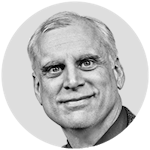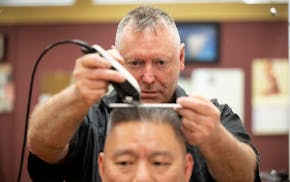David Cleveland, the retired Minneapolis banker, called the MN Cup director a few days before the event to let him know that he and his wife, Carolyn, felt up to the trip from their Wisconsin tree farm.
Cleveland, 89, had made the annual entrepreneurial contest and event possible in its early years with his time and more than $1 million in donations.
"He died three days before the Minnesota Cup that he and Carolyn had founded, and without their initial gift there would have been no Minnesota Cup," said John Stavig, director of the program, which held its finals last week.
Cleveland died Sept. 17 at his Sarona, Wis., home.
Cleveland — joined by his late son, Brad, a computer scientist who died of brain cancer in 2016 after retiring as the founding CEO of publicly held Protolabs — also were critical advisers and mentors to fledgling entrepreneurs.
Raised professionally in the former First Bank system, Cleveland and three other founding investors started Riverside Bank in 1974 on the West Bank of the University of Minnesota. The neighborhood was known more for counterculture and cooperatives than commerce.
Cleveland and partners, including a late University of Minnesota accounting professor and Dorsey and Whitney business lawyer, knew the area was underbanked. Riverside became a small-business growth lender with a low loan-delinquency rate.
Cleveland was an excellent business analyst and judge of character, according to his colleagues.
"Dave was an optimist, but he wasn't naïve," recalled Kate Barr, a former senior vice president of Riverside who started out as a student dancer and employee at the nearby Guild of Performing Arts.
"Dave took me under his wing and taught me budgeting. I became pretty good at accounting. He hired me in 1979," she said. "He did 'character-driven' lending — loans based on indicators of character and instinct as well as capital. If he trusted you, if he believed you would be honest, borrower or employee. He also demanded honesty. And hard work."
Dee Thibodeau, the veteran entrepreneur, was working on her third successful business in the 1980s. She could not get a loan, a common situation for women 35 years ago.
"It took Dave about 20 minutes to give me a $50,000 line of credit," recalled Thibodeau, who also went on to start Riverside-banked Charter Solutions, which employs more than 100 people working on health care software. "Dave was a friend to small businesspeople and entrepreneurs. And Riverside made money. I always paid back my loans."
Cleveland backed Steve Flagg and Mary Henrickson in the 1970s. Flagg, once a mechanic-manager at the West Bank's Freewheel Bike Co-op, has built one of America's largest wholesale distributors and manufacturers at Bloomington-based Quality Bicycle Products.
Riverside also was a significant lender to real estate investors, restaurateurs and art businesses in the then-fledgling Warehouse District that has boomed since the 1980s. And Riverside lenders had a knack for backing successful niche manufacturers.
During the booming 1990s, Riverside expanded to a downtown and suburban site. It grew profitably to $350 million in assets and posted top-tier returns on equity and assets.
Cleveland sold Riverside in 1999 for about $90 million in Associated Bancorp stock, a hefty three-times "book" or net-equity value. Cleveland's stake was about $35 million.
The Clevelands donated much of their wealth to favorite causes, including $1 million to a South Dakota summer camp where Dave's dad, a minister, worked for years.
Cleveland, whose pay peaked at a modest $275,000 running one of Minnesota's best-performing banks, enjoyed investing in employees, customers and community, those who knew him said. He ran Associated's Minnesota franchise through 2002.
"Wealth means nothing to me," Cleveland said after the sale. "I like to work. I also like to hear people say 'thank you.' I'm very fortunate."
Dave and Carolyn Cleveland "retired" to their Sarona farm. He grew trees and vegetables. They were local community and youth volunteers. Dave Cleveland also was called on by regulators several times to help with troubled area banks — for free.
Cleveland talked with me in 2009 about the problem, as the country wrestled with the financial crisis and subsequent Great Recession that cost millions their jobs.
"Bankers and investment bankers and short-term greed," Cleveland said. "Where [were] their boards of directors? The regulators used to get after me once in awhile for a 'substandard loan' to some small business. We had plenty of our capital backing those loans. My board knew [what] I was doing when we took a risk on a small business. And they knew I wasn't spending shareholder money on country clubs or Vikings tickets.
"Because of the greed, we got this horrible recession, a lot of good companies laying off workers. Small businesses can't get credit," he said. "It irritates the hell out of me.''
Dave Cleveland gave business and money a good name.
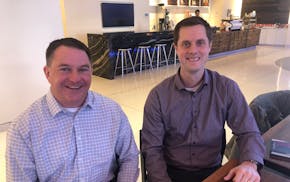
St. Anthony: 'Patient' investing paying off for St. Paul's Hill Capital
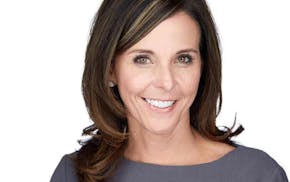
Jennifer Smith, leader of Burnsville's Innovative Office Solutions, has died
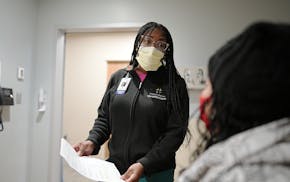
St. Anthony: Medical professions in Minnesota need more people of color in their ranks

